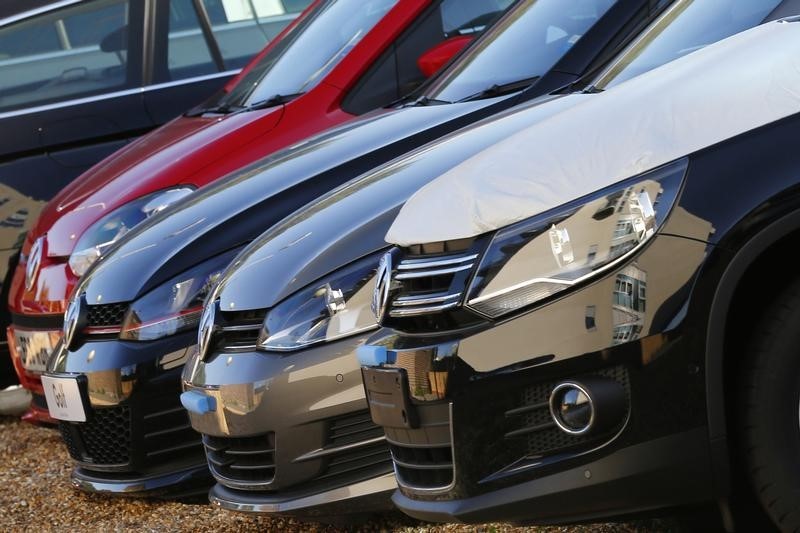This post was originally published on this site
https://i-invdn-com.investing.com/trkd-images/LYNXMPEJ2C0NG_L.jpg
WOLFSBURG, Germany (Reuters) -Volkswagen chose Canada to build its first battery cell plant outside Europe, granting its cars access to both Canadian and U.S. subsidies as it works to localise electric vehicle production chain in the region.
Volkswagen AG (OTC:VWAGY) confirmed in December it was looking for sites for a Canadian plant, six months after signing a memorandum of understanding with the country to secure access to key raw materials for batteries.
Canada, home to a large mining sector for minerals including lithium, nickel and cobalt, is trying to woo companies involved in all levels of the EV supply chain via a multi-billion-dollar green technology fund as the world seeks to cut carbon emissions.
VW joins a Stellantis NV and LG Energy Solutions joint venture in building an EV battery supply chain in Canada, as European car makers seek to benefit from a U.S. climate law that requires 50% of EV battery components be made in North America for vehicles to qualify for tax credits of up to $7,500.
The Canadian federal innovation minister, Francois-Philippe Champagne, called the VW battery plant a “home run for Canada” and said it was “the largest single investment in the auto sector in the history of Canada”, without giving details.
The plant will be based in the city of St. Thomas, around 195 km (120 miles) northeast of Detroit, which sits across the Detroit River across from Windsor, Ontario. The two cities are connected by the Ambassador Bridge.
“I think all the big manufacturers understand that if you need to green the supply chain, Canada is the place to do that,” said Champagne.
Chemicals giant BASF a year ago also secured land in Canada for a planned battery materials facility to better serve electric vehicle markets in the U.S. and Mexico.
It also reflects efforts by European firms to expand their U.S. presence, eager to tap the generous Inflation Reduction Act (IRA) launched last year by President Joe Biden.
Cars with batteries from the planned Volkswagen (ETR:VOWG_p) site, too, will qualify for IRA subsidies, allocated to vehicles with a battery made with a minimum proportion of critical minerals extracted or processed in the United States or a country with a U.S. free-trade agreement, or recycled in North America.
VW’s announcement did not specify the size of the investment or the capacity of the new plant, but board member Thomas Schmall said in August the company was targeting 20 gigawatt hours of capacity at its first North American site.
Volkswagen has long said it is working toward setting up regional supply chains in Europe, North America and China for EV production in light of high transport and logistic costs, supply chain risks and geopolitical tensions.
The IRA gave Volkswagen an incentive to prioritise decisions on North American investments, it said last week, adding that plans for battery plants in Europe were still in place but it would wait to see whether there would be better incentives.


